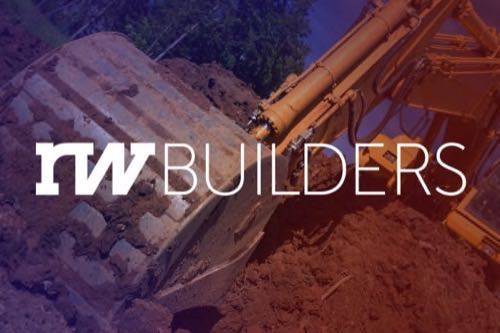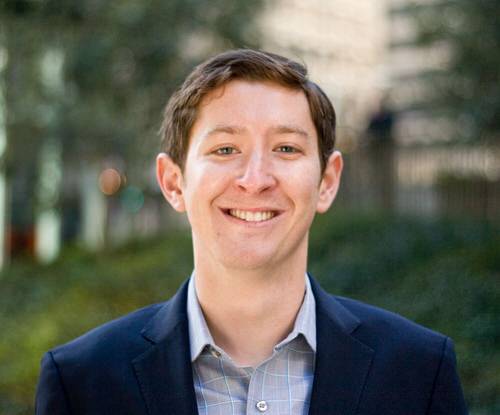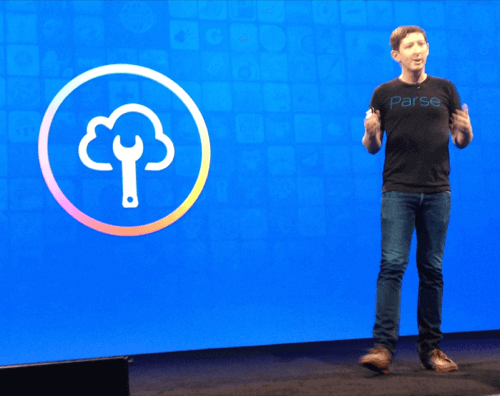
ReadWriteBuilders is a series of interviews with developers, designers and other architects of the programmable future.
Coming up with an idea for a new app is often the easy part. Actually coding and debugging it is more of a challenge—and then tying it into “backend” cloud services that offer storage, notifications and integration with social networks can just plain be a real slog.
Which is where services like Parse come in. The “backend as a service” startup, which Facebook acquired in April, aims to make it easy for developers to build great apps that run across multiple platforms such as iOS and Android.
In a sense, Parse and its rivals serve as “app plumbers”—they offer simple connections to the cloud’s “pipes” that handle complex tasks many app developers would just as soon not have to figure out themselves. By doing so, they greatly simplify the task of making apps work on different platforms. That’s no small task: Between the launch of smartwatches and the prospect of self-driving cars in the not-too-distant future, developers and companies are likely to face a proliferation of new platforms to build on.
I caught up with Ilya Sukhar, cofounder and CEO of Parse, at the company’s developer day earlier this month. Sukhar, who’s immersed in the fluid world of application development, predicts the next few years will be an exciting time for developers.
How Parse Grew

ReadWrite: What made you start Parse?
Ilya Sukhar: I was building these apps, and it was painful. It wasn’t fun. I wasn’t doing what I expected to be doing, I wasn’t spending time on the stuff I was expecting to be spending time on and it dawned on me that something was wrong in the world.
And that’s always a good source for startup ideas, right? When you find something in your life that extends out to others and is particularly painful and needs to be fixed. I was building this series of apps and simultaneously realized that I wasn’t going to be the next Zuckerberg creating social experiences, and realized my strengths lie in platforms and hardware systems. People really needed this.
RW: Did you anticipate or plan on getting acquired by a company like Facebook?
IS: No, I don’t think anyone anticipated getting acquired. I mean, when you’re in the trenches you’re just focused on shipping that product and turning that zero into a one.
I advise a lot of startups these days, and I find that startups focused on getting acquired are the least likely to get acquired. If you’re focused on your product and killing it, grinding it out day after day, people start to approach you. But if you’re building your company and strategizing how to get rich two years from now, you’ll probably never get off the ground.
RW: How has Parse grown since you were acquired?
IS: It’s grown a lot in terms of usage, a bunch in terms of headcount. We obviously have a lot more resources at our disposal. We also have a lot more users and servers to manage….
We don’t have any new numbers to share, but it’s certainly growing quickly. At certain times we’ve seen ten times the number of signups we had before, so I think that trend is pretty good.
RW: What are some challenges you’ve faced along the way?

IS: In the early days, the primary challenge was getting people to trust us. We clearly had an interesting product and something that was building quickly and culminating on an interesting platform, but if you’re the Food Network, it’s a big leap of faith to build your entire second screen experience on a startup that, at the time, only had seven people, and we were in a dusty conference room office on Market Street. Getting folks to commit and build something serious on Parse was a big hurdle for us.
Why Apps Are So Hard To Build
RW: Is building applications harder or easier than it was in 2011?
IS: It’s easier in some ways. There are more companies like ours that are focused on mobile developers, and platforms used to provide great services on the Web that have realized they need to offer great services on mobile. [Platforms like ours] are helpful tools that are starting to move to mobile, but on the other hand there are more platforms like the Windows phone that’s now on the rise. And there is a greater demand for performance. People really expect you to have a great mobile app.

It’s more competitive, like getting ranked on the top charts on the App Store is harder, and the silos of Apple, Google and Microsoft are getting stronger. That’s one thing Parse is focused on—providing a service that transcends silos and lets people build an app on iOS and Android that can share data between them, bringing identity from both places.
Companies like Apple, Google and Microsoft want you to use all their stuff from the top down, and really tie yourself to just one platform and one way of doing things. I think Parse is really bucking that trend, and there are other companies doing that as well, and I think that’s a great thing for the world of programming.
RW: What can we anticipate coming out of the partnership between Parse and Facebook?
IS: Parse fits into Facebook’s current vision, which is that Facebook Platform should be the best way to build, grow and monetize cross-platform apps. We’re part of that build category. As you watch Parse going forward, Parse will become the underlying layer that people build on and pull in various Facebook services when they need them. That’s how the product will evolve with the union of the two.
RW: Is there anything that you wanted to build for Parse when you first created it that hasn’t come to fruition yet?
IS: Yes, there are some things, but I can’t share them because then I wouldn’t have anything to announce in six months or a year. [laughs]
And Why It’s Not Getting Any Easier
RW: What do you envision for the future of app development? Where is it going to be in the next five years?

IS: I think it will be really interesting. Even from the time that we’ve started, Android has really risen up. When we were first getting started, most people were iOS-first and now more people are starting with Android, or both.
I think there’s an interesting thing going on where Google is trying to assert more control over Android and it will be interesting to see how that plays out, because they are trying to reign in some of the fragmentation in the marketplace. That could be really great for developers or it could be really hard. A lot of the manufacturers could form their own versions. Who knows? It’s hard to predict.
The world of mobile development will be forever complicated. There are many more devices coming on the market every day. Watches just came on the market, and like James [Yu] was talking about [during the conference], we might have toasters.
That’s why we have the Parse Pledge. The idea is that Parse is this cross-platform tool that lets you depend on us to be there when the next great toaster platform rises up in popularity. Or whatever it might be. We’re there for you and we should be able to give you all the base tools so you don’t have to reinvent the wheel.
RW: If you had to guess, what do you think the next programmable device will be, after the smartwatch?
IS: I think the watch is the main thing that’s coming and will be interesting in terms of app development.
But other than that, there’s a clear answer. Cars. You’re going to see the center console of cars become more standardized so people can do useful things like plug in applications and devices in more standardized ways in the center console in cars. That will be really cool.
RW: So kitchen appliances are further on the horizon?
IS: I don’t know, I think self-driving cars and everything you can do in a Tesla is much cooler than a fridge. But I’m not that into cooking.
Plumbing images via Shutterstock.com. All other images by Selena Larson for ReadWrite
















